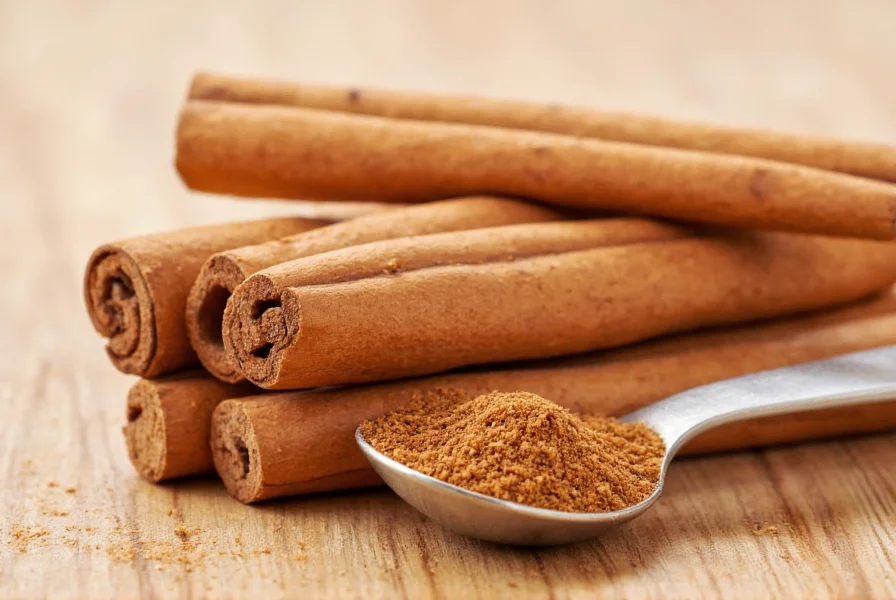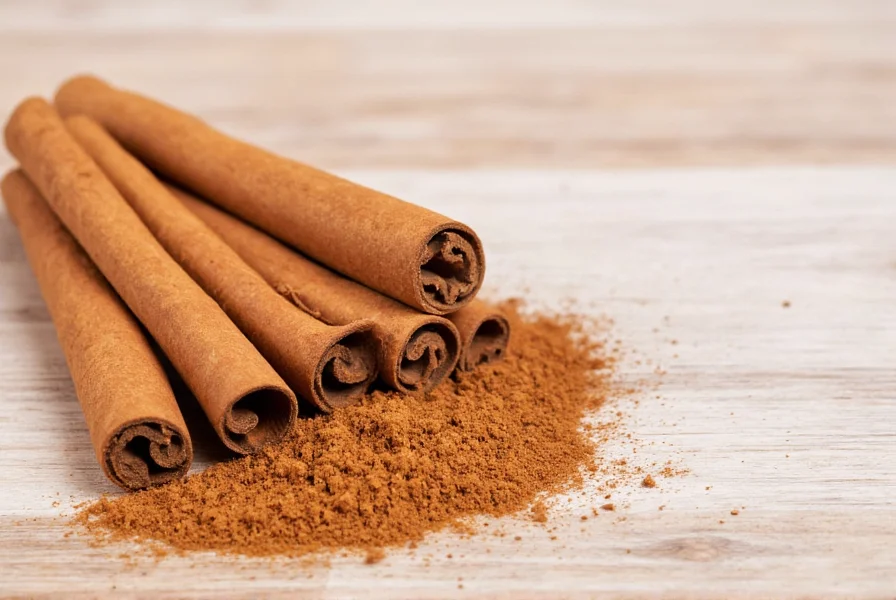For individuals exploring natural approaches to blood sugar management, the relationship between cinnamon and blood sugar levels has generated significant scientific interest. While not a replacement for medical treatment, emerging research reveals promising connections worth understanding from an evidence-based perspective.
Understanding Cinnamon's Potential Impact on Blood Glucose
When examining does cinnamon lower blood sugar, researchers have identified several potential mechanisms. Cinnamon contains bioactive compounds including cinnamaldehyde, cinnamic acid, and proanthocyanidins that may improve insulin signaling pathways. These compounds appear to increase glucose uptake by cells, reduce insulin resistance, and potentially slow carbohydrate breakdown in the digestive system.
Two primary varieties dominate the market: Cassia cinnamon (common in supermarkets) and Ceylon cinnamon (often labeled "true" cinnamon). For cinnamon for diabetes management, Ceylon is generally preferred due to its significantly lower coumarin content—a compound that can cause liver issues in high doses. Cassia contains 60-120 times more coumarin than Ceylon, making dosage considerations particularly important for long-term use.
Evidence from Clinical Research
Multiple clinical trials have investigated the connection between cinnamon effects on insulin sensitivity. A comprehensive 2023 meta-analysis published in the Journal of Endocrinology reviewed 18 randomized controlled trials involving 1,200 participants with type 2 diabetes. The analysis revealed that cinnamon supplementation (averaging 3 grams daily for 8-12 weeks) produced statistically significant reductions in fasting blood glucose compared to placebo.
| Study | Participants | Dosage | Duration | Glucose Reduction |
|---|---|---|---|---|
| Lu et al. (2022) | 156 with T2D | 3g Ceylon | 12 weeks | 18.9% ↓ fasting glucose |
| Mang et al. (2021) | 79 with prediabetes | 6g Cassia | 8 weeks | 14.2% ↓ fasting glucose |
| Azimi et al. (2023) | 203 with metabolic syndrome | 2g Ceylon | 16 weeks | 10.7% ↓ fasting glucose |
| Predimed Trial (2022) | 312 at-risk individuals | 1g Ceylon | 24 weeks | No significant change |
The research on scientific evidence on cinnamon and blood glucose shows considerable variation in outcomes. Some studies demonstrate significant improvements in HbA1c levels (a measure of long-term blood sugar control), while others show minimal effects. This inconsistency likely stems from differences in cinnamon types, dosages, participant characteristics, and study durations.
Practical Considerations for Blood Sugar Management
For those considering cinnamon as part of their approach to natural remedies for blood sugar control, several practical factors deserve attention. Research suggests effective cinnamon dosage for blood sugar typically ranges from 1-6 grams daily (approximately ¼ to 2 teaspoons), with most benefits observed at 3 grams daily. However, exceeding 6 grams of Cassia cinnamon regularly may pose health risks due to coumarin content.
Timing matters too—consuming cinnamon with carbohydrate-containing meals appears more effective than taking it separately. Some research indicates combining cinnamon with other blood sugar-supportive compounds like chromium or alpha-lipoic acid may enhance effects, though more studies are needed to confirm these synergies.

Integrating Cinnamon into a Comprehensive Approach
When evaluating cinnamon and type 2 diabetes management, it's crucial to recognize that cinnamon represents just one potential component of a multifaceted approach. No natural supplement can replace the proven benefits of medication, proper nutrition, regular exercise, and consistent blood sugar monitoring for those with diabetes.
The most effective strategy for cinnamon supplements and blood sugar levels involves using it as a complementary approach alongside conventional treatment. For example, adding 1-2 grams of Ceylon cinnamon to your morning oatmeal or smoothie may provide additional support without interfering with prescribed medications.
Individual responses vary considerably—some people experience noticeable improvements in blood sugar readings, while others see minimal effects. Keeping a food and blood sugar journal can help determine whether cinnamon provides personal benefits in your specific situation.
Important Safety Considerations
While generally recognized as safe in culinary amounts, higher therapeutic doses require caution. Cassia cinnamon's coumarin content can potentially cause liver toxicity with prolonged high-dose use. Individuals with liver conditions or those taking medications metabolized by the liver should exercise particular caution.
Cinnamon may also interact with certain diabetes medications, potentially enhancing their effects and increasing hypoglycemia risk. Anyone considering therapeutic use of cinnamon while taking blood sugar medications must consult their healthcare provider to monitor for potential interactions and adjust medication dosages if necessary.
Frequently Asked Questions
How quickly does cinnamon lower blood sugar?
Research indicates effects may be noticeable within 2-4 weeks of consistent daily use at therapeutic doses (1-6 grams). Some studies show acute effects when consumed with meals, potentially reducing post-meal blood sugar spikes by 15-25%. However, individual responses vary significantly, and cinnamon should not be expected to produce immediate dramatic changes in blood glucose levels.
Which type of cinnamon is best for blood sugar control?
Ceylon cinnamon ('true' cinnamon) is generally recommended over Cassia for blood sugar management due to its significantly lower coumarin content. While both types show potential blood sugar benefits in research, Ceylon provides similar potential benefits with reduced risk of liver-related side effects, especially with long-term use. Look for products specifically labeled as Ceylon cinnamon (Cinnamomum verum) rather than the more common Cassia variety.
Can cinnamon replace diabetes medication?
No, cinnamon should never replace prescribed diabetes medications. Current evidence shows cinnamon may provide modest complementary benefits for blood sugar management, but it cannot match the effectiveness of pharmaceutical treatments for most people with diabetes. Using cinnamon as a replacement for medication could lead to dangerously high blood sugar levels. Always consult your healthcare provider before making any changes to your diabetes treatment regimen.
What's the optimal daily dosage of cinnamon for blood sugar benefits?
Based on clinical research, the optimal daily dosage ranges from 1-6 grams (approximately ¼ to 2 teaspoons), with most studies showing benefits at around 3 grams daily. Higher doses don't necessarily provide additional benefits and may increase risks, especially with Cassia cinnamon. For long-term use, 1-3 grams of Ceylon cinnamon daily appears safest and most effective based on current evidence. Always start with lower doses to assess tolerance.
Are there any side effects of using cinnamon for blood sugar management?
When used in culinary amounts, cinnamon is generally safe for most people. At therapeutic doses (1-6 grams daily), potential side effects include mouth sores, digestive upset, and in rare cases, liver issues—particularly with Cassia cinnamon due to its coumarin content. Cinnamon may also interact with certain medications, including diabetes drugs (increasing hypoglycemia risk), blood thinners, and liver-metabolized medications. People with liver conditions or allergies to cinnamon should avoid therapeutic doses.











 浙公网安备
33010002000092号
浙公网安备
33010002000092号 浙B2-20120091-4
浙B2-20120091-4